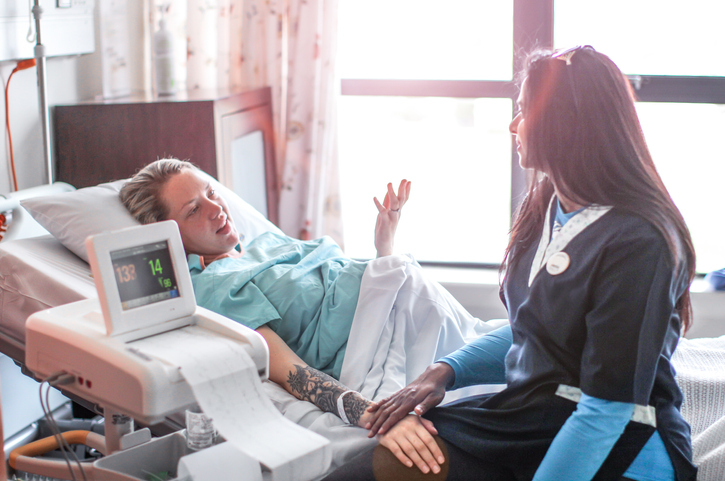Hemolytic disease of the fetus and newborn (HDFN) was first described by a French midwife in twins in 1609. These days, prenatal care for women pregnant with a baby affected by HDFN is now predominantly managed by a specialized multidisciplinary healthcare team. But midwives and doulas still have a role to play during labor and birth.
Midwives and doulas specialize in providing care and supporting the mother and her family. Adequate support during pregnancy and childbirth has a positive effect on mother and child.
What is HDFN?
Hemolytic disease of the fetus and newborn (HDFN) is an immune-mediated red blood cell (RBC) disorder that occurs when a baby’s RBCs break down quickly, which is called hemolysis. HDFN is caused by a mismatch between a mother’s and her baby’s blood type (A, B, AB, or O) or Rhesus (Rh) factor (Rh-positive or Rh-negative) during pregnancy. Numerous antibodies to RBC antigens can be linked to HDFN, such as those from the ABO and Rh blood group systems.
The role of midwives in pregnancy and birth
Midwives in the United States are mostly registered nurses who have also completed certified training to become a nurse-midwife. The role of a midwife is to provide care and support to women during pregnancy, labor and after birth. Women who experience high-risk pregnancies, such as HDFN-affected pregnancies, require even more care and support. Midwives help to balance the natural and medical perspectives women with high-risk pregnancies, who are vulnerable and exposed.
A maternal-fetal medicine (MFM) doctor usually takes the lead in caring for pregnant women affected by HDFN, as midwives don’t have specialist training in HDFN. But the midwife can be part of the multidisciplinary team, at the request of the pregnant mother.
The role of doulas in pregnancy and birth
A doula is a non-medical companion trained to provide support to women during labor, birth and postpartum in both vaginal or cesarean births. Doulas also provide support to the immediate family.
In pregnancies affected by HDFN, the risk is high that the baby will require preterm delivery via a cesarean. The support of a doula in the preparation for a C-section, as well as in an emotional capacity, has been shown to benefit the pregnant mother and her family. Doulas also contribute to maternal mental well-being by reducing stress and anxiety and supporting the mother during the trauma of birth.
Families affected by HDFN
The occurrence of HDFN during pregnancy affects the pregnant mother, but also her circle of family and friends. The initial risk may be identified by a midwife during prenatal blood screening, but medical care during pregnancy should then be transferred to a more specialized MFM doctor.
As well as receiving personalized expert care during a high-risk pregnancy and birth affected by HDFN, some pregnant women choose to be accompanied by a midwife and/or a doula for further emotional support. As well as pregnancy and birth, they also offer care and support postpartum, helping the family navigate the challenges of caring for a newborn with HDFN.

